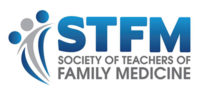

The 40 interactive virtual patient cases in AquiferSM Family Medicine deliver on the learning objectives of the Society of Teachers of Family Medicine’s (STFM) clerkship curriculum, powered by AqueductSM, Aquifer’s teaching and learning platform.
Overview
Aquifer Family Medicine builds clinical competency, fills educational gaps, and helps instill the core values and attitudes of family medicine. The course fosters self-directed and independent study, develops clinical problem-solving skills, and teaches an evidence-based, patient-centered approach to patient care.
- Created for educators, by educators, to cover the full range of STFM curriculum
- Available for institutional subscription or for direct purchase by individual subscribers
- Access to Aquifer Calibrate: Transformative Assessments for Clinical Learning Mastery, our innovative system for formative assessment, available with your 2024-25 subscription
- Proven pedagogy that standardizes experiences—overcoming geography, seasonality, and accessibility
- Evidence-based, peer-reviewed, and continuously updated content
- Self-assessment questions emphasize key content and enable students to test their knowledge and skills
- A wealth of source material, tools, and full references in each case
- Delivered via the Aqueduct teaching and learning platform, which includes user management options, easy reporting on student progress and course usage, plus tools for creating custom courses to match a specific curriculum
This course covers the complete STFM Family Medicine Clerkship Curriculum. Course content includes five Aquifer Pediatrics cases and two Aquifer Internal Medicine cases to help cover the full range of family medicine learning objectives.
Aquifer Family Medicine can be used by third-year medical students, PA students, and NP/DNP students as a complement to a clerkship or course on family medicine.
Aquifer Calibrate, an innovative system for formative assessments, is available for Aquifer Family Medicine. Calibrate combines the concepts of test-enhanced learning and distributed practice to facilitate efficient study planning and self-directed learning for students, and identify at-risk students and curricular gaps for faculty. Calibrate is available with your 2024-25 institutional subscription to Family Medicine.
Family Medicine 01: 45-year-old female wellness visit
Family Medicine 02: 55-year-old male wellness visit
Family Medicine 03: 65-year-old female with insomnia
Family Medicine 04: 19-year-old female with sports injury
Family Medicine 05: 30-year-old female with palpitations
Family Medicine 06: 57-year-old female diabetes care visit
Family Medicine 07: 53-year-old male with leg swelling
Family Medicine 08: 54-year-old male with elevated blood pressure
Family Medicine 09: 50-year-old female with palpitations
Family Medicine 10: 45-year-old male with low back pain
Family Medicine 11: 74-year-old female with knee pain
Family Medicine 12: 16-year-old female with vaginal bleeding and UCG
Family Medicine 13: 40-year-old male with a persistent cough
Family Medicine 14: 35-year-old female with missed period
Family Medicine 15: 42-year-old male with right upper quadrant pain
Family Medicine 16: 68-year-old male with skin lesion
Family Medicine 17: 55-year-old post-menopausal female with vaginal bleeding
Family Medicine 18: 24-year-old female with headaches
Family Medicine 19: 39-year-old male with epigastric pain
Family Medicine 20: 28-year-old female with lower abdominal pain
Family Medicine 21: 12-year-old female with fever
Family Medicine 22: 70-year-old male with new-onset unilateral weakness
Family Medicine 23: 5-year-old female with sore throat
Family Medicine 24: 4-week-old female with fussiness
Family Medicine 25: 38-year-old male with shoulder pain
Family Medicine 26: 55-year-old male with fatigue
Family Medicine 27: 17-year-old male with groin pain
Family Medicine 28: 58-year-old male with shortness of breath
Family Medicine 29: 72-year-old male with dementia
Family Medicine 30: 27-year-old female labor and delivery
Family Medicine 31: 66-year-old female with shortness of breath
Family Medicine 32: 33-year-old female with painful periods
Family Medicine 33: 28-year-old female with dizziness
Pediatrics 01: Newborn male infant evaluation and care
Pediatrics 02: Infant female well-child visits (2, 6, and 9 months)
Pediatrics 03: 3-year-old male well-child visit
Pediatrics 04: 8-year-old male well-child check
Pediatrics 13: 6-year-old female with chronic cough
Internal Medicine 02: 60-year-old female with chest pain
Internal Medicine 16: 45-year-old male who is overweight
From Our Cases

User Story
Learn how Aquifer Family Medicine can benefit medical students and faculty in your program:
Testimonial
“In the first and second years of medical school, you learn a lot about physiology and diseases—usually by organ system. Aquifer Family Medicine gives you the opportunity to start thinking about the way that patients actually present—and begin to apply what you already know. The cases are a wonderful way to start turning medical facts into clinical judgment. I just wished I had used them earlier and more often.”
Third-Year Medical Student


